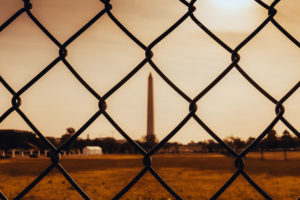Patriotic Preservation or Whitewash? The Pushback on Racial Reckoning
 Photo by ElevenPhotographs on Unsplash
Photo by ElevenPhotographs on Unsplash In mid-September the Trump administration held its first “White House Conference on American History” at which the president promised to “defend the legacy of America’s founding, the virtue of America’s heroes, and the nobility of American character.”
In the spirit of critical thinking and honest academic exploration, one might think the way to do this would be to accurately and judiciously explore the issues surrounding the foundations of the United States and the history of our country. But that’s not at all what the conference intended.
Trump went on to say,
That is why I recently banned trainings in this prejudiced ideology [critical race theory] from the federal government and banned it in the strongest manner possible. The only path to national unity is through our shared identity as Americans. That is why it is so urgent that we finally restore patriotic education to our schools. Under our leadership, the National Endowment for the Humanities has awarded a grant to support the development of a pro-American curriculum that celebrates the truth about our nation’s great history.
The White House issued an executive order banning any training by a federal agency or contractor that examines the idea that racism and sexism are woven into the “fabric of America,” explores the concepts of “white privilege” or “critical race theory,” or includes any criticism of the founders’ commitments to equality. It was backed up by a memo from Russell Vought, director of the Office of Budget and Management, which instructed federal agencies and contractors to identify all diversity and inclusion trainings held in 2020 that included keywords such as “white privilege,” “intersectionality,” “systemic racism,” and “unconscious bias.”
These directives are already having consequences outside the federal government. The University of Iowa—which, like many institutions of higher learning, receives some federal funds—announced that it would “pause” all diversity and inclusion trainings until it could assess how the executive order might pertain to them. This pause affects a wide swath of programs, from staff anti-discrimination trainings, to faculty certificate programs, to the establishment of an LGBTQ safe zone. The University of Michigan, on the other hand, has proactively condemned the order, calling it
a direct violation of our right to free speech and has the potential to undermine serious efforts to acknowledge and address long-standing racist practices that fail to account for disparate treatment of our citizens throughout our society. The university will continue to examine the implications of this order and speak out against it.
And not only is the White House curtailing what government employees and federal contractors should learn about equality and diversity, the administration is also attempting to manipulate what schoolchildren are taught about history in America’s public schools.
The 1619 Project was developed by the New York Times Magazine to “reframe the country’s history by placing the consequences of slavery and the contributions of black Americans at the very center of [the] national narrative.” It won a Pulitzer Prize and has become the basis for a curriculum aimed at helping students better understand the inherent conflicts in a country whose founding documents proclaimed “liberty and justice for all” while at the same time codified the institution of slavery.
There is controversy about the undertaking, with scholars and critics—including Pulitzer Prize-winning historian James McPherson and Princeton historian Sean Wilentz—asserting that some of the project’s assumptions and basic facts are wrong or misinterpreted. On Friday one of the New York Times’ own columnists, Brett Stephens, bucked accepted best journalistic practices in heavily criticizing what he sees as the 1619 Project’s flaws. But the landmark project has also earned considerable praise for challenging the accepted view of America’s founding and history.
In September the White House directed the Department of Education to investigate the use of the 1619 Project in public schools, going so far as to tweet, “Department of Education is looking at this. If so, they will not be funded!” And support goes beyond the executive branch. Shortly after the conference, Sen. Tom Cotton (R-AR) introduced the Saving American History Act of 2020, which would explicitly prohibit the use of federal funds to incorporate the 1619 Project into the public-school history curriculums.
As a direct counter, the president announced the creation of the “1776 Commission” to promote the patriotic version of American history trumpeted at the Conference on American History.
Reaction to this controversial whitewashing of history has been swift. The American Historical Association issued a statement saying they condemn
the use of history and history education at all grade levels and other contexts to divide the American people, rather than use our discipline to heal the divisions that are central to our heritage. Healing those divisions requires an understanding of history and an appreciation for the persistent struggles of Americans to hold the nation accountable for falling short of its lofty ideals. To learn from our history we must confront it, understand it in all its messy complexity, and take responsibility as much for our failures as our accomplishments.
As American humanists who care about critical thinking and essential explorations of the truth, we should follow the lead of other groups and be willing to analytically examine the foundations of our country—both strengths and faults—so we can move into a future that includes true equality for all.
